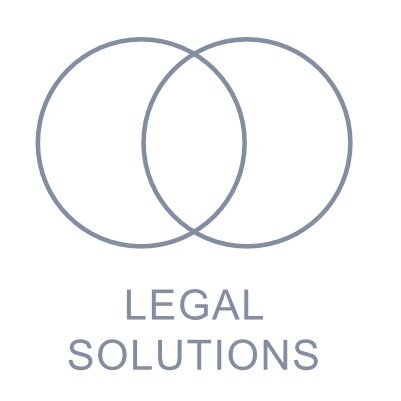Best Water Law Lawyers in Lesotho
Share your needs with us, get contacted by law firms.
Free. Takes 2 min.
Or refine your search by selecting a city:
List of the best lawyers in Lesotho
About Water Law in Lesotho
Water Law in Lesotho refers to the body of laws, regulations, and policies governing the use, management, and protection of water resources throughout the country. Due to Lesotho’s unique geography and its status as the “Kingdom in the Sky,” water is both a vital resource for local communities and a source of significant economic activity, especially given the Lesotho Highlands Water Project (LHWP), which exports water to South Africa. The legal framework seeks to balance the rights and responsibilities of various water users, prioritize fundamental needs, and protect the environment.
Why You May Need a Lawyer
There are several common situations in Lesotho where you may need a lawyer specializing in Water Law:
- Resolving disputes over water usage between individuals, communities, or businesses.
- Negotiating rights for access to surface or groundwater on communal or private land.
- Understanding and complying with regulations concerning water abstraction for commercial or agricultural activities.
- Seeking compensation or responding to grievances related to large infrastructure projects like the LHWP.
- Challenging or appealing government decisions regarding water allocation or permits.
- Protecting local communities from environmental impacts or pollution caused by other users.
- Understanding the legal implications of participating in community water management committees.
Local Laws Overview
The main statutes and regulations governing Water Law in Lesotho include the Water Act of 2008, which establishes the legal framework for the use, development, and conservation of water resources. Key aspects of Lesotho’s Water Law include:
- Ownership of Water: All water resources are vested in the State for the benefit of the people of Lesotho.
- Permitting: Most uses of water, especially for commercial or non-domestic purposes, require a permit from the Department of Water Affairs.
- Community Participation: Local communities are often involved in the management of water schemes through established committees and associations.
- Environmental Protection: There are strict guidelines preventing water pollution and ensuring the sustainable use of water resources.
- Dispute Resolution: The law provides mechanisms for resolving water-related disputes locally and, if necessary, through the courts.
- Large Scale Projects: Projects like the LHWP have specific legal and regulatory frameworks, including compensation and environmental mitigation provisions.
Frequently Asked Questions
What is the Water Act of 2008?
The Water Act of 2008 is the primary law governing the ownership, use, and protection of water resources in Lesotho. It sets the rules for water allocation, permits, community management, and environmental standards.
Do I need a permit to use water from a river or stream for farming?
Yes, if the amount you use exceeds domestic purposes, you are generally required to obtain a permit from the Department of Water Affairs.
Who owns the water resources in Lesotho?
All water resources are owned by the State, managed for the benefit of the public, meaning private ownership of water itself is not allowed.
How are water disputes between villages handled?
Disputes are usually first addressed through local water committees, but unresolved issues can be escalated to government authorities or courts.
What protections exist against water pollution?
There are regulations prohibiting the discharge of pollutants into water bodies, and violators can face penalties or be required to pay for clean-up.
Are there specific laws for large water projects like dams?
Large projects such as the LHWP operate under detailed legal agreements and regulations, including environmental and social safeguards.
Can my community form a water management committee?
Yes, communities are encouraged to form local water user associations or committees to help manage shared water resources in line with the law.
What should I do if a neighboring farm is using excessive water?
You can report the issue to your local water committee or the Department of Water Affairs for investigation and possible enforcement action.
How does Water Law address drought or water scarcity?
The law allows authorities to prioritize essential domestic water use and implement restrictions or allocate water according to need during scarcity.
Where can I get legal advice on Water Law issues?
Legal advice is available from legal practitioners, relevant government departments, or organizations specializing in environmental and natural resource law.
Additional Resources
For more information or support, consider these key resources:
- Department of Water Affairs - Responsible for water permits, regulation, and information about legal requirements.
- Lesotho Highlands Development Authority - For specific issues related to the LHWP.
- Ministry of Water - Sets overall policy on water management.
- Local Government Offices - Often handle questions and disputes at the community level.
- Legal Aid Clinics - Provide guidance for individuals unable to afford private legal counsel.
- Civil Society Organizations - Such as those advocating for environmental or community rights.
Next Steps
If you need legal assistance concerning Water Law in Lesotho, start by identifying the specific nature of your issue. Gather any relevant documents, permits, or correspondence you may have. Next, contact the Department of Water Affairs or your local government office for information about legal requirements or possible complaint procedures. If you require formal legal advice or representation, consult a qualified legal practitioner experienced in Water Law, or seek help from a legal aid clinic if cost is a concern. Acting promptly and seeking informed guidance will help you protect your rights and interests regarding water resources in Lesotho.
Lawzana helps you find the best lawyers and law firms in Lesotho through a curated and pre-screened list of qualified legal professionals. Our platform offers rankings and detailed profiles of attorneys and law firms, allowing you to compare based on practice areas, including Water Law, experience, and client feedback.
Each profile includes a description of the firm's areas of practice, client reviews, team members and partners, year of establishment, spoken languages, office locations, contact information, social media presence, and any published articles or resources. Most firms on our platform speak English and are experienced in both local and international legal matters.
Get a quote from top-rated law firms in Lesotho — quickly, securely, and without unnecessary hassle.
Disclaimer:
The information provided on this page is for general informational purposes only and does not constitute legal advice. While we strive to ensure the accuracy and relevance of the content, legal information may change over time, and interpretations of the law can vary. You should always consult with a qualified legal professional for advice specific to your situation.
We disclaim all liability for actions taken or not taken based on the content of this page. If you believe any information is incorrect or outdated, please contact us, and we will review and update it where appropriate.
Browse water law law firms by city in Lesotho
Refine your search by selecting a city.












